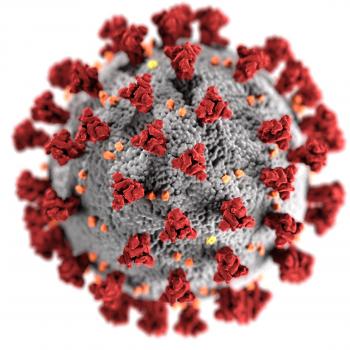 |
| Me and my non-toxic daughter. 🙂 |
 |
| Me and my other non-toxic daughter. |
There’s a growing tendency these days, as indicated by a number of articles and article titles I’ve run across, to describe a certain type of person as “toxic.” Every time I read the word “toxic”, it conjures up pictures of a doctor’s office trash can reserved for used needles and … other yucky stuff. In some ways, the point is well taken. There is, and always will be, people in this world who seemingly emit poison that makes others want to run the other way. But my beef with referring to people as toxic is that it is unloving. Even if a person is a cold-blooded killer, as long as they are here on earth, there’s a possibility of a turn around. The same turn around I once made, and have to continually make on a daily, sometimes moment by moment basis. As long as there’s breath, there’s hope for every person to improve. And nobody is truly toxic. Someone may have more issues than we’d prefer to deal with, but that does not make them toxic. It makes them human, and probably less fortunate than we have been in life, because those who hurt others have been hurt as well, and are likely responding the only way they know how.
Maybe I’m a non-conformist, but I refuse to refer to fellow humans the same way I’d refer to a chemical spill on the highway. As people made in the image of God, their value is far above that. However, the struggle is real, right? So what to do with those who are bent on being bent out of shape and, wittingly or unwittingly, invite us to join them in their pursuit of unrighteous, unloving, destructive behavior?
I was reading a book the other day about women mentoring women, and it was saying that anytime you get involved in other people’s lives, it’s probably going to get messy. But as Christians, we’ve got this call to make disciples, and so … we’ve got to think about how we’re going to respond when what we thought would be such holy fun (mentoring!) ends up feeling like more like an unrighteous, second Civil War.
This author was also saying that for empathetic people (like me!), it can be extremely difficult to pry away from the emotion of the person who is participating in bad behavior, and what happens is those negative emotions end up making the empathetic person feel pretty cruddy. Sinful, even.
So let’s take women, for example. We are a breed that can often slip into gossip, hate speech, and/or disrespect toward our husbands, employers, or whoever crosses us on PMS day. With clenched jaws, we can fall into ugly verbal slams toward our children who “just can’t seem to keep their room clean, even though we’ve told them a bazillion times to do it every night after supper.” Or whatever. If you’re a woman, you know what I’m talkin’ ’bout. Some of us have deep struggles with bitterness, and as the Word says, out of the heart springs the issues of life (Prov. 4:23, paraphrase mine). So whether the problem is bitterness, envy, or any number of other heart issues, it will eventually spew out of our lipsticked lips. That’s why, whether our tendency is to be a spewer or an overly empathetic listener, we need to “keep our heart with all diligence.”
I want to hit on how the overly empathetic listener might do that. How do those of us who have the gift of lending an ear not allow destructive talk soak into us like water on a dry, crunchy sponge?
Well, one way, as the author said, is for the listener to encase herself in a bubble. It’s an imaginary bubble, of course, and a bubble that’s not easily pop-able, because words, as we know, are some of the most damaging weapons that can ever be hurled in our direction. Sticks and stones may break our bones, and words can and do hurt us. All the time. Even if the they aren’t hurled at us personally, they often feel as though we’ve been pierced with an arrowhead right in our heart.
So the bubble is tough enough to protect from that piercing sting, that onslaught of harmful words – and yet, it does not require us to reject the person saying them. The bubble does not make us deaf or blind. It simply is a shield that allows us to say, “I hear you, but in a factual way. And I refuse to take what’s being said into myself, into my very being. What you are putting out is your sin, your issue, and I am free to help you through it, but I do not have to accept your sin as my own.”
For me, this has been a great way to “keep my heart will all diligence.” While it is true that my problem in life is very often myself, it is also true that some self-protection can be a good thing. We think protecting ourselves from physical harm is okay, and it is. It’s also okay to protect ourselves from verbal onslaughts, especially for those of us who have a tendency to take in other people’s sin as our own. Empathy is a gift, but it’s a gift that needs to be kept in check. The bubble is just there to free me to love the other person, but it also protects me from damaging my own heart and conscience.
So my new approach is … if you need to talk, of course I’m here. But if you want me to listen to the junk in your trunk in a way that isn’t a sincere attempt to become more Christ-like, my bubble will go up. I will not allow your sin issues to affect me the way they are affecting you.
Please understand: I am speaking of verbal situations that are unequivocally sinful. Most of the time, I believe we should be empathetic. We should weep with those who weep. But we should also not sin with those who sin, or attempt to shoulder another person’s sin as our own. This can be a fine line, and it takes being in tune with the Holy Spirit to know when to empathize, and when to wrap ourselves in a bubble. And whether we’re in or out of the bubble, loving the other person is always the way to go. That may mean staying, hearing grievances, and offering Biblical advice or praying with them. It also may mean leaving the room as a clear signal that we refuse to participate, because we’ve attempted the aforementioned way a million times, with no forward progress, and it’s clear we’ve simply become a receptacle for verbal barf. We should ask God to help us know the right response.
On the cross, Jesus chose to take all our sin as His own. He bore it all. And the thing to remember is that we are not Jesus, nor is our life mission to die on a cross for another person’s sin. We are simply Jesus followers, trying to point fellow sinners to Him who already paid for their sins. It is not our responsibility to absorb anyone’s sin as though it were our own. It’s our job to recognize and be grieved by the sin, realize we do not battle against flesh and blood, and love sinners by pointing them to the One who cleanses us from all unrighteousness.
The bubble also serves to keep the other person in check, as it becomes obvious to them that I refuse to participate in their sin (they will sense when the bubble goes up). And it reminds me that I am a miserable savior, and my one and only job is to simply point others toward the greatest and only Savior, Jesus Christ.
Lord, please give us wisdom and help us as we deal with – not toxic people – but people made in Your image. ~Amen
















